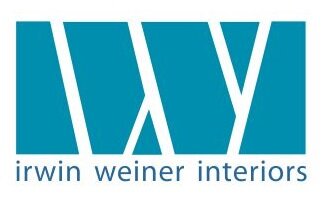DESU Design
At Brooklyn, NY-based DESU DESIGN, artisans strive to make innovative products that blur the boundary between art and design. In the studio's words, "Our goal is to create pieces of lasting quality, retaining their beauty and functionality for generations. We utilize the precision of modern manufacturing methods with the unmatched skills of the human hand. Inspiration comes from forms found in nature, the history of modern design, and the combined beauty of geometry and the machine."
DESU is a Japanese word that roughly translates to the verb “to be” and is used in almost every single sentence in the Japanese language, even though it doesn’t really have any meaning. It is also the acronym for David E. Scott Unlimited.
David Scott, DESU's principal designer, has an architectural background and fine arts background, along with life-long experience building things. His influences come from many different sources. He loves to simply investigate forms, materials, and methods of production with no preconceived final goal. If there is a goal in mind, then he tries to reduce it down to its essence. The results are well-constructed, timeless designs made to stand the test of time—both physically and aesthetically.
 In My Own Words: David Scott
In My Own Words: David Scott
I began designing furniture at the age of 18 as means of improving life in a dorm room. Five years and a BFA later, I ended up in Japan working with an international team of artists designing and building nightclubs by day, and inhabiting them by night. The learning curve was fast, steep, and a great deal of fun.
Upon returning to the states, I was accepted to the Master’s of Architecture program at the Southern California Institute of Architecture (SCI-Arc). After the first year, I decided that borrowing $25,000 a year to build imaginary projects was not as much fun as doing the real thing. I convinced Lawrence (Larry) Scarpa, who had been an instructor for one of my classes to hire me to build some metal stairs for Pugh + Scarpa’s new office, and DESU was born. Much collaboration with the Pugh + Scarpa team followed, and other architects in the burgeoning vanguard of the LA architecture scene became clients. Paying the rent became less of a problem, and it the off hours, product ideas became realities and were tucked away for a future line.
In 2000, I moved to New York in order to develop the DESU line and bring it to market. DESU has been steadily growing every since, and I look forward to working toward its continued expansion. My philosophy for the company has always been to build what we want, the best way possible. I spend a great deal of my time seeking out the highest quality materials and vendors that are masters of their discipline. Learning about new technologies and how we can incorporate them into our designs is one of my favorite pursuits, and keeps our ideas fresh. My goal for DESU is to continue on this trajectory of innovation and to above all else, enjoy doing it.
 It is the simplicity of the 1-Line Spice Rack that makes it visually striking. David tends to look more at how things function than how things are styled: this rack leaves the style to the spices themselves.
It is the simplicity of the 1-Line Spice Rack that makes it visually striking. David tends to look more at how things function than how things are styled: this rack leaves the style to the spices themselves.
 The Valas (“whale” in Finnish) draws its inspiration the underside of the blue whale hung in the Natural History Museum. The sleek elongated shape and striated lines were carved into the original Valas, made from a black slab of compressed paper pulp (a material commonly used in kitchen countertops). The design was nice, but the piece was lacking something. David Scott revisited the material selection and went with white marble for its timeless elegance. The “belly” of the bowl lost its ridges, but it's kept its shape.
The Valas (“whale” in Finnish) draws its inspiration the underside of the blue whale hung in the Natural History Museum. The sleek elongated shape and striated lines were carved into the original Valas, made from a black slab of compressed paper pulp (a material commonly used in kitchen countertops). The design was nice, but the piece was lacking something. David Scott revisited the material selection and went with white marble for its timeless elegance. The “belly” of the bowl lost its ridges, but it's kept its shape.

